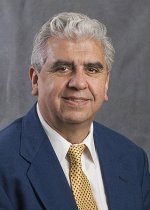Atmospher Sci & Global Chg
Research Highlights
June 2008
U.S. Climate Change Effects Revealed
A comprehensive new report reveals that the effects of human-caused climate change in the United States are more widespread and significant than previously thought. The national assessment, with leadership and contributions from Pacific Northwest National Laboratory scientists, was released in May 2008 under the U.S. Climate Change Science Program.
The report documents the most extensive examination ever conducted of the impacts of climate change on U.S. ecosystems over the past few decades and into the near future. The bottom line: climate change is already affecting forests, water resources, farmland, and wildlife—and will continue to do so.
To write the assessment, 38 scientists and researchers from a variety of fields conducted an exhaustive review, analysis, and synthesis of the scientific literature, surveying more than 1,000 publications.
The findings point to measurable effects—many of them negative—from global warming and higher carbon dioxide concentrations. "We're already seeing more and larger wildfires, more agricultural and forest pests, and increasingly drier conditions in the Western and Southwestern United States,” said Dr. Tony Janetos, a convening lead author for the report. And the future doesn’t look much brighter, with the assessment predicting "profound effects."
The report is significant in two ways, according to Janetos. First, it brings a sense of urgency because the changes are evident today, not just years from now. And it establishes a scientific baseline for how the nation will need to cope. “Knowing which impacts to focus on, and where, will help officials make better decisions when managing resources and setting policy,” Janetos said.
In addition to Janetos’ lead role, Dr. Cesar Izaurralde and Allison Thomson served as contributors to the assessment. All three are with the Joint Global Change Research Institute, a partnership of the Pacific Northwest National Laboratory and the University of Maryland. Janetos, Izaurralde, and Thomson have extensive research expertise in global change, its impacts, and options for mitigation. In addition to Janetos, the other convening lead authors were Peter Backlund of the National Center for Atmospheric Research and David Schimel of the National Ecological Observatory Network.
Janetos briefed Congress on the report’s findings, followed by a period of extensive media coverage.
The report,"Effects of Climate Change on Agriculture, Land Resources, Water Resources, and Biodiversity in the United States," is available online. Known as Synthesis and Assessment Product 4.3, it’s one of a series of 21 reports being produced under the U.S. Climate Change Science Program, which coordinates the climate change research activities of U.S. government agencies.
Acknowledgments: The Pacific Northwest National Laboratory advances scientific frontiers for U.S. competitiveness by transforming the nation’s ability to predict climate change and its impacts. The U.S. Department of Agriculture was the lead funding agency for this report, with the National Center for Atmospheric Research managing the effort under a cooperative agreement with USDA.



